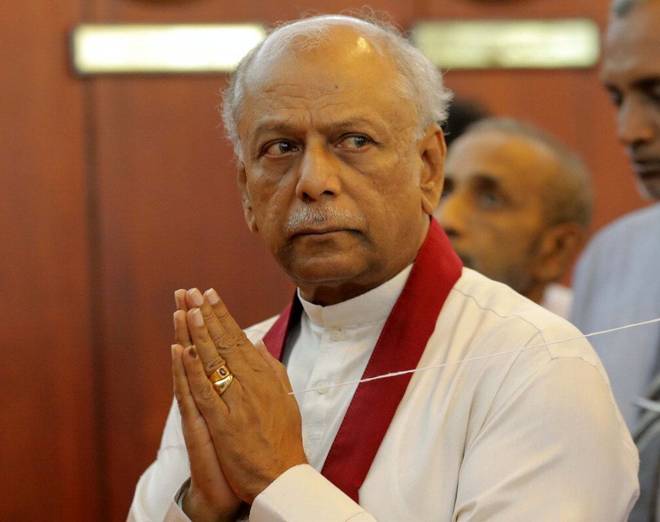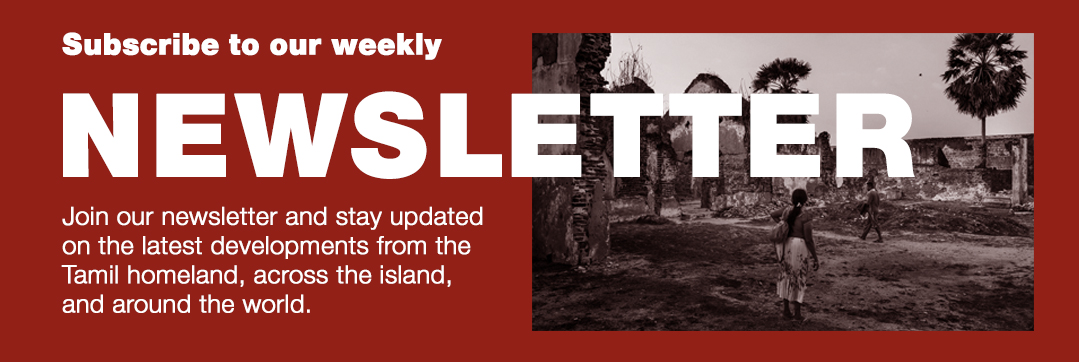
Last week, European Parliament passed a ground-breaking resolution on Sri Lanka decrying the deterioration of human rights and calling on the European Council to consider repeal of the GSP+ trading agreement and for targeted sanctions on Sri Lankan officials accused of war crimes. This follows a court ruling in Britain which maintained that peaceful Tamil activists faced the threat of ill-treatment in Sri Lanka, which the court described as an “authoritarian regime”. That same month, marking 12 years since the Mullaivaikkal massacre, US Congresswoman Deborah Ross introduced a bipartisan resolution into the House of Representatives maintaining the need for an “international mechanism for accountability in Sri Lanka”.
Faced with renewed international pressure Sri Lanka’s Foreign Minister, Dinesh Gunawardena, lashed out against America claiming that allegations were “inaccurate, biased and unsubstantiated”. He further asserted that a “coterie of sympathisers of the LTTE” had influenced the US to “carry forward the separatist agenda of the LTTE”. Sri Lanka’s tired excuse of linking Tamil activists campaigning for human rights to “terrorism” has grown thin within the international community. The British Court noted that Sri Lanka drew “no material distinction between the violent means of the LTTE and non-violent political advocacy”. Similarly, the EU resolution urged Sri Lanka to “refrain from using allegations of “terrorist financing” to deny civil society organizations access to legitimate sources of funding”.
Despite this Sri Lanka has persisted in flagrant disregard to the concerns of the international community. Following a statement by 9 EU ambassadors decrying the detention of a Muslim poet under Sri Lanka’s draconian PTA; Sri Lankan authorities dragged, Ahnaf Jazeem before a court in Colombo, denying his lawyers the chance to make submissions on Jazeem’s behalf. Sri Lanka’s contempt for human rights was further displayed when a senior government official claimed that the dozens of journalists who had been murdered on the island were “third class ones”.
Equally appalling has been the hypocrisy of Germany, which has chosen to deport over 20 Tamil refugees days before the resolution despite having voiced concern for Sri Lanka's human rights record. Switzerland which has also deported Tamil refugees in the past has passed a draconian new “counter-terrorism” bill that would repress Tamil activists and give the policing sweeping authority in surveillance and arrests. In Britain, despite increased parliament opposition the government has refused to state if they continue military aid and support to Sri Lanka.
Australia has perhaps an even more dire record, choosing to stay silent on the issue of human rights and support Sri Lanka militarily in order to curb the number of Tamil refugee seeking asylum in Australia. Australia’s malicious treatment of Tamil refugees has been in the spotlight after a 4-year-old Tamil refugee was hospitalised after being denied medical treatment.
Ben Andak, Staff Writer
_____
For more regular updates, sign up to our newsletter below.
____

